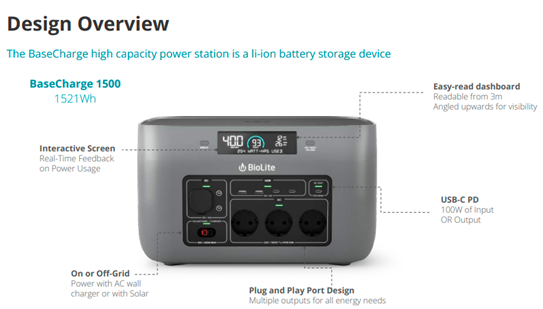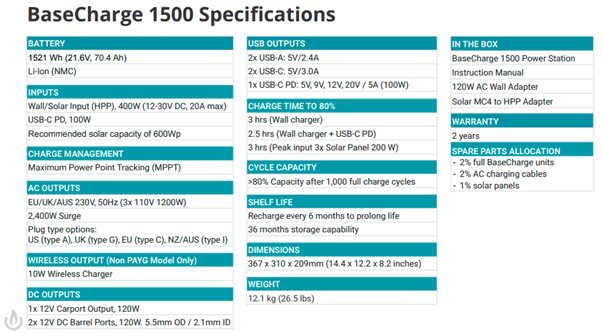- Date
- 10th July 2024
- Categories
- Cooking Appliances, Electric Cooking
By Dr Jon Leary, Gamos East Africa, MECS Programme
Last year has seen the commercial launch of an array of innovative IoT-enabled customised appliances on the Kenyan market targeted specifically at underserved market segments. To date, eCooking appliances have been sold to wealthy urban consumers, however these products have been carefully designed around the needs and aspirations of a much broader range of Kenyan cooks, leveraging technological advances to deliver aspirational yet attainable modern energy cooking services. As a result, eCooking is becoming an increasingly equitable solution to the clean cooking challenge. This is part one of a two-part blog series which aims to highlight these innovative appliances that will change how Kenyans cook.

Image courtesy of PowerPay Africa.
Tefal EPC digitised by PowerPay – Bringing eCooking Appliances into the Digital Era
This product is a result of a collaboration between a multinational corporation (Groupe SEB) and a Kenyan startup (PowerPay), facilitated by MECS Programme and Kenya Power. Groupe SEB are the parent company of many internationally renowned brands, such as Tefal, Moulinex and Krups. Founded in 1857 and growing to achieve a revenue of over seven billion euros today, with manufacturing facilities in four continents and over 30,000 employees, Groupe SEB is one of the major players in the global appliance manufacturing and distribution business. In contrast, PowerPay is the new kid on the block, leveraging expertise from Kenya’s vibrant mini-grid and solar sectors to offer digitisation as a service to conventional appliance manufacturers/distributers who would like to reach beyond their traditional customer base.
PowerPay’s innovative IoT-enabled hardware and data platform enables major manufacturers such as Groupe SEB to sell their high-quality products to customers who otherwise could not afford the high upfront cost by enabling remote monitoring and lockout. These features enable the appliances to be sold on a PayGo business model, access to high integrity carbon credits certified through Gold Standard’s metered methodology and in the future, they may also enable access to customised electricity tariffs designed specifically for electricity that is used for cooking. Last year, MECS supported Groupe SEB to redesign the Tefal Efficook EPC with a menu featuring popular East African foods and the EPC entered the Kenyan market through a range of partnerships with Last Mile Distributors (LMDs) such as Nyalore Impact, Bidhaa Sasa and Mwangaza Light. PowerPay piloted 200 digitised Tefal EffiCook EPCs under the eCAP programme as part of an awareness campaign with Kenya Power to enable its customers to start cooking with electricity. PowerPay’s digitisation service now enables these LMDs to sell their appliances on PayGo and claim high integrity carbon credits.
In fact, Tefal Efficook is just the first of an array of conventional appliances that will be available in digitised form in 2024 thanks to PowerPay’s expanding range of partnerships with popular brands in the Kenyan market, such as Von (Hotpoint) and Sayona. Watch this space!
Made in Kenya – Burn Manufacturing’s Locally Assembled Smart Induction Stove and Locally Manufactured Cookware
Burn Manufacturing have dominated the improved biomass cookstoves (ICS) space for many years now, with their modern factory in Nairobi pumping out over 250,000 ICS every month and exporting across the continent. As a forward-looking company, they are already aware that the future is electric and have launched a suite of electric cooking products, including the first EPC with a customised menu for Kenyan dishes and more recently the first smart induction stove on the Kenyan market. They recently launched their induction cookware production line, which manufactures induction-compatible steel cookware, filling a big gap in the market, as most cookware currently sold in Kenya is aluminium and does not work with the induction stove’s ferro-magnetic coil. The induction stove is available on PayGo as a package with three steel pots and pans.


BioLite BaseCharge – enabling dependable eCooking solutions anywhere!
Increasing access to on- and off-grid electricity, coupled with decreasing prices of energy storage, and increasing efficiency of electric cooking appliances, have opened the door to a transformative new opportunity for mitigating the intermittency of supply challenge: cooking with battery-supported electric appliances. Early field trials of the MECS Cooking Power Stations research prototypes carried out by SCODE in Nakuru County, Kenya, alongside partners in Uganda and Tanzania, have shown proof of concept for both grid-connected and off-grid cooking systems supported with battery storage. However, commercial entities have now started to produce products with similar specifications. BioLite’s BaseCharge 1500 delivers 1.2kW peak power with 1.5kWh storage, meaning that it can support all commercially available household scale EPCs to cook between 2 and 10 dishes on a single charge. Not only can it do that, but it can also power a range of other household appliances, via 5V DC USB, 12V DC or 240V AC outlets. What is more, it can be charged from solar or the grid and is fully portable, making it ideal for street vendors and other catering businesses. Importantly, BaseCharge is also available as an IoT-enabled PayGo-ready product.



Figure 4a: Key Technical Specifications of BioLite BaseCharge 1500. Images courtesy of BioLite.

Synix Ugali Maker – Africa’s rice cooker?
Ugali, pap, kenke, nshima, fufu and numerous other popular staples cooked across the continent involve vigorously stirring different types of flour into water as it is simmered. This process creates a stiff porridge that makes a delicious accompaniment to stews, vegetables, and numerous other more flavoursome accompaniments. Many of our colleagues have now shown that cooking ugali in an EPC or rice cooker is just as easy as in a conventional saucepan, however, the thick viscous mixture requires very vigorous stirring action, requiring the cook to regularly return to the cooking pot to turn over the mixture as it bakes. Whilst many prototypes for an ‘ugali cooker’ (or ‘pap cooker,’ ‘nshima cooker’ …) have been developed, to our knowledge, none have yet been fully commercialised.
Synix’s new appliance is a blender crossed with a rice cooker that is capable of simultaneously mixing and heating a whole range of dishes such as porridge, soup, mashed root vegetables. In Kenya it is sold as an ‘ugali maker,’ but in Nigeria it is a ‘fufu maker’ and in Ghana it is a ‘swallow maker’ (fufu and banku). Synix is owned by Transsion Holdings, a Chinese parent company for many popular brands on the continent, including Tecno, Infinix and Oraimo. As a result, they can leverage their existing customer relationships, marketing strategies and supply chains to rapidly scale this new product, which has been developed to fill a gap in the market. Synix have been selling conventional eCooking appliances such as microwaves and rice cookers on the continent for some time now, however they saw an opportunity to create a new product that was specifically designed to cook the major staple that many of their existing customers wanted to prepare daily. Asia has already seen the electrification of cooking sweep across their continent when the rice cooker was developed to cook the major staple for many – the ugali/pap/nshima/fufu/kenke/… could do the same for Africa.

Stay tuned for Part 2 of this blog series, with another four innovative new appliances that will change the way Kenyans cook in 2024 and beyond.